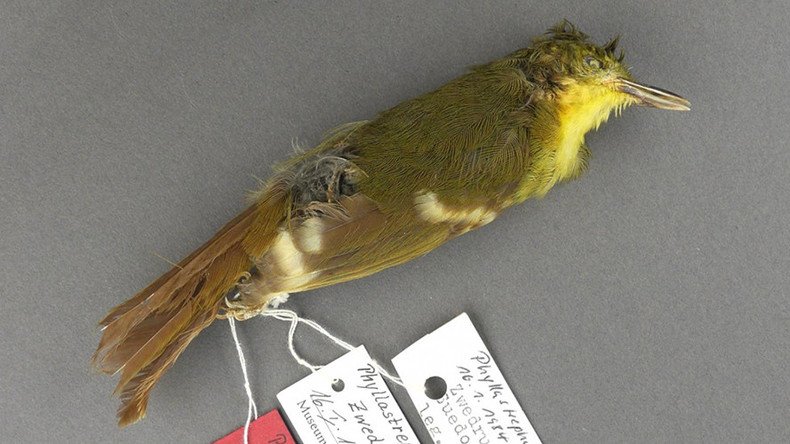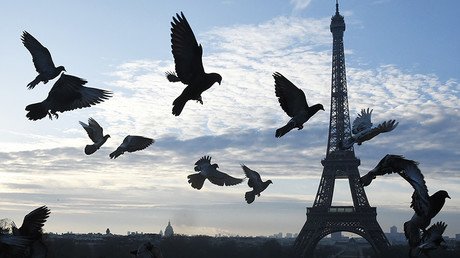World’s rarest songbird is so rare because it's not real – study

A new study into one of the world’s most “elusive” species of songbird found that the Liberian Greenbul may be so hard to spot because... it never actually existed.
A team of researchers from the University of Aberdeen conducted the study into the species to find out more, or any, information about the bird that has “eluded experts for decades”.
In fact, the Liberian Greenbul has only ever been spotted on nine occasions in Cavalla Forest, south-eastern Liberia, between 1981 and 1984, and was considered different to the commonly found Icterine Greenbul, because of its white spots.
Now, DNA analysis of the only specimen ever collected (in 1984) has concluded that the distinctive white spots were probably caused by a nutritional deficiency while its feathers were still growing.
READ MORE: Shooting the messenger: Drug-carrying ‘narco pigeon’ taken out by police (PHOTO)
Furthermore, when the specimen’s DNA was compared to that of the Icterine Greenbul, scientists found no significant genetic difference between the two.
“The Liberian Greenbul has gained almost ‘mythical’ status since it was sighted in the ‘80s”, said Professor Martin Collinson, a geneticist from the University of Aberdeen’s Institute of Medical Sciences.
“We can’t say definitively that the Liberian Greenbul is the same bird as the Iceterine Greenbul but we have presented enough evidence that makes any other explanation seem highly unlikely,” added Collinson.
The Liberian Greenbul had been officially listed as “critically endangered” up until 2016. The shocking results of the study have been published in the Journal of Ornithology.












